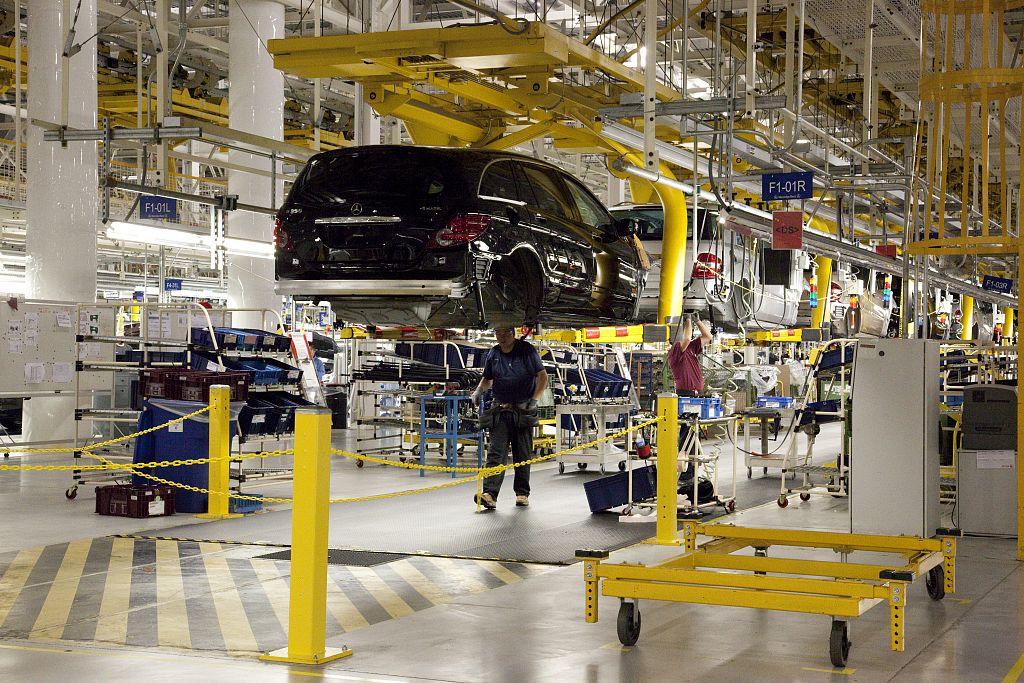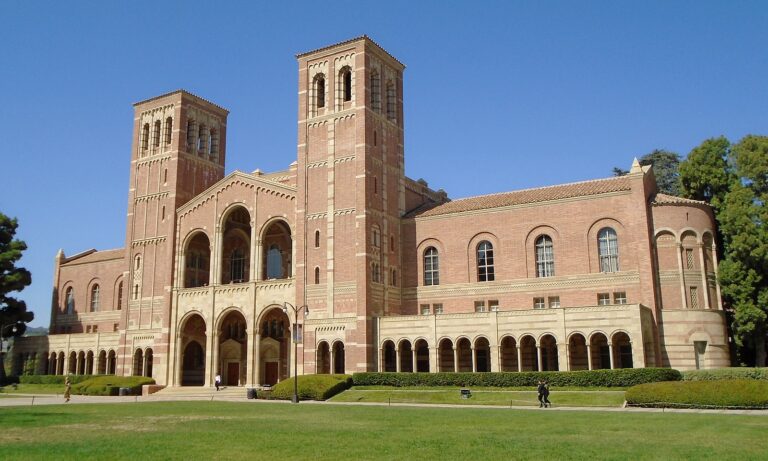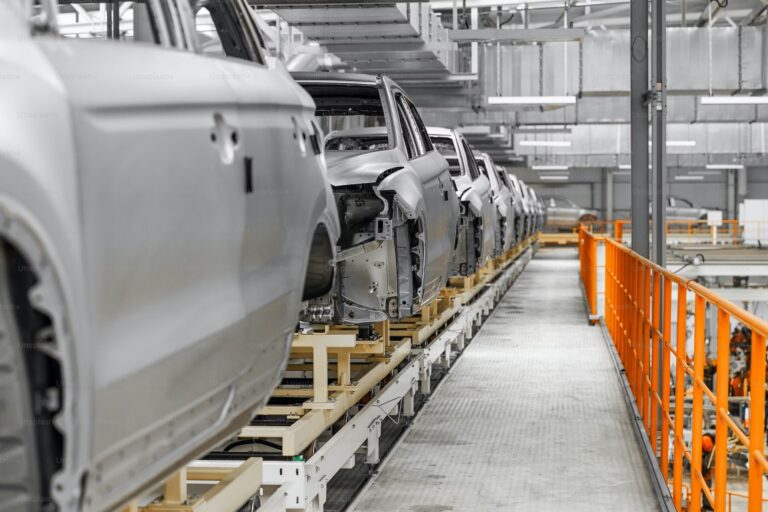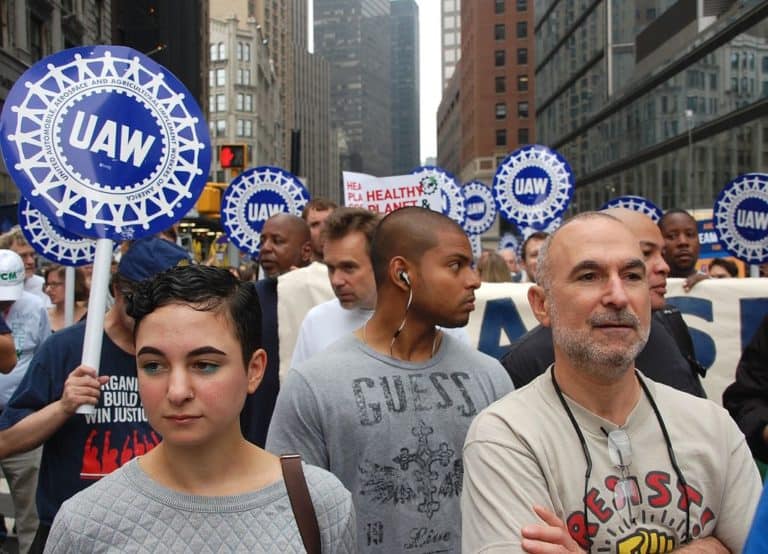
Liz Poulos is a student at Harvard Law School and a member of the Labor and Employment Lab.
They say beauty is in the eye of the beholder. In President Trump’s eyes, “tariff” is “the most beautiful word in the dictionary.” In the short few months since his return to America’s highest office, President Trump has already waged an unprecedented tariff campaign, including a 25% tariff on imported cars and car parts. United Auto Workers (UAW) and their president Shawn Fain promptly endorsed this new tariff in an official statement, declaring that it will “end the free trade disaster that has devastated working class communities for decades.”
Beyond the economic cost of the tariff raised by many critics of the UAW’s endorsement, a more insidious long-term price demands particular scrutiny: the erosion of cross-border North Atlantic solidarity among auto workers. Most critically, this policy will upend the decades-long legacy of American and Canadian workers bargaining in solidarity together arm-in-arm across the border and undermine labor power throughout the North Atlantic auto industry.
A risky bet: conceding 80 years of cross-border North Atlantic solidarity for the gamble of “reshored” American auto jobs and rising prices
With 60% of parts going into American-made cars coming from across the border, any potential for these tariffs to “reshore” investment will need to contend with the preexisting dependence of domestic manufacturing on imported parts. This shift in the market will tack on an additional $3,000 to each American-made car, as one analyst put it: “bottom line: lower production, tighter supply and higher prices are around the corner.” But endorsing this tariff means not only justifying this tariff’s cost on American automaking supply chains, it also requires co-signing a taxation on unionized Canadian auto-workers who have organized, bargained, and struggled alongside the UAW for generations.
In 1937, it was the UAW itself which drove the initial unionization effort of Canadian auto workers after a massive GM plant strike erupted in Oshawa. After the first strike, the UAW trained organizers, led union drives across the country, and eventually accrued thousands of Canadian members over a series of years.
In the following decades, UAW leadership in the U.S. and Canada established the infrastructure necessary for maintaining robust labor power among Canadian and American auto workers, launching myriad cross-border bargaining units, developing strategic strike campaigns, and fostering a sense of trust and solidarity among members on both sides of the border.
In 1984, a disagreement over perceived capitulation to the Reagan Administration inspired the Canadian Auto Workers (later merging with Unifor) to branch off and establish their own labor organization. Despite the split in formal union affiliation, both the CAW and Unifor continued to organize, bargain, and work in solidarity with their brothers and sisters to the south, even when the manufacturing market shrunk. As one Wayne State Professor of labor studies put it: “They’re all part of the same industry. It’s not necessarily who is taking jobs from whom, it’s the same industry. No one is stealing from anybody. There’s shrinkage on both sides of the border.”
Given this legacy of cross-border solidarity enduring despite periods of stress in the North Atlantic auto industry, it is not surprising that the UAW’s endorsement of a policy that will burden the Canadian members of their sibling-unions shocked Canadian auto workers.
Live from the Ambassador Bridge: Canadian auto workers speak out about the tax on their labor
Speaking at a press conference hosted at the literal and symbolic border between Canada and the United States –on the Ambassador Bridge connecting Windsor and Detroit– President of the Canadian Labour Congress Bea Bruske responded to the endorsement, declaring that “Shawn Fain is absolutely wrong.”
She warned that the reverberations of these tariffs’ harmful impact are already being felt on union factory floors on both sides of the bridge. Given how interconnected the supply chain is between North Atlantic auto workers and the interdependence of these unions’ bargaining power as a united front toward the transnational corporations who employ their members, any cost put on Canadian auto workers labor will harm American workers as well.
Bruske argued that the UAW failed to justify how they could embrace a policy that will put a tax on the labor of their Canadian sister-union members, threatening layoffs to deal with the price-hike and harming the prosperity of autowork in the region long term. Placing the American UAW and Unifor at adverse bargaining positions with opposite approaches to tariff prices hikes, this endorsement undermines cross-border shared solidarity by stoking frustration among Canadian auto workers toward their American colleagues and makes it easier for management to divide-and-conquer the labor power of North Atlantic workers.
John D’Agnolo, president of Unifor Local 200 and member of Ford’s Master Bargaining unit coordinated by both Unifor and UAW members, reported that he and his members were deeply troubled by the tariffs. He asserted that they fundamentally disagree with a trade approach that undervalues the interdependence of auto-workers across borders; threatening the prosperity of your neighbor will ultimately undermine the shared prosperity of all North Atlantic auto workers by diminishing their bargaining power.
North Atlantic workers for generations have relied upon an organizing and bargaining arrangement among Canadian and American unions rooted in an understanding of non-discrimination: American workers, Canadian workers, all make up the same body of North Atlantic auto workers employed by the same automaker corporations and entitled to the same protection by the unions. Guided by competing approaches to this tax on Canadian labor and saddled with distinct economic imperatives toward these tariffs, it will now be next to impossible for these unions to bargain together and maintain this essential cross-border solidarity.
An appeal for cross-border North Atlantic auto worker solidarity
Ultimately, the UAW’s championing of these tariffs not only debilitates North Atlantic auto workers’ bargaining power and collective union strategy, but is irreconcilable with an industry of auto workers whose labor power depends upon cross-border solidarity.
“Cross-border solidarity strikes at the heart of one of the mechanisms that enable the corporate class to dominate: its global reach. When they cross borders, they are (in investor logic) diversifying – pitting one set of workers against another.”
Sean Crawford, UAW Local 160 member and Michigan native, points out here that UAW’s endorsement of Trump’s tariff and stated approach to trade policy attempt to solve the “free trade” problem with a solution that is ultimately paradoxical: trying to getting out-from-under the free trade system’s “dividing and conquering” workers by embracing a policy that ultimately “pit(s) workers against each other” by privileging American auto workers over Canadian workers. The ideal strategy for dealing with free trade’s “diversification” among workers must be the opposite:
“The strategy to fight these corporate giants must be global… It wasn’t that long ago that auto workers in Canada and the U.S. were members of the same union. Imagine what we could accomplish together!”
A labor-power-focused trade solution to the problem of free trade must organize workers across borders to struggle together, bargain together, and build power together, so that management pitting solidarity against nationality is no longer an option.










Daily News & Commentary
Start your day with our roundup of the latest labor developments. See all
March 3
In today’s news and commentary, Texas dismantles their contracting program for minorities, NextEra settles an ERISA lawsuit, and Chipotle beats an age discrimination suit. Texas Acting Comptroller Kelly Hancock is being sued in state court for allegedly unlawfully dismantling the Historically Underutilized Business (HUB) program, a 1990s initiative signed by former Governor George W. Bush […]
March 2
Block lays off over 4,000 workers; H-1B fee data is revealed.
March 1
The NLRB officially rescinds the Biden-era standard for determining joint-employer status; the DOL proposes a rule that would rescind the Biden-era standard for determining independent contractor status; and Walmart pays $100 million for deceiving delivery drivers regarding wages and tips.
February 27
The Ninth Circuit allows Trump to dismantle certain government unions based on national security concerns; and the DOL set to focus enforcement on firms with “outsized market power.”
February 26
Workplace AI regulations proposed in Michigan; en banc D.C. Circuit hears oral argument in CFPB case; white police officers sue Philadelphia over DEI policy.
February 25
OSHA workplace inspections significantly drop in 2025; the Court denies a petition for certiorari to review a Minnesota law banning mandatory anti-union meetings at work; and the Court declines two petitions to determine whether Air Force service members should receive backpay as a result of religious challenges to the now-revoked COVID-19 vaccine mandate.